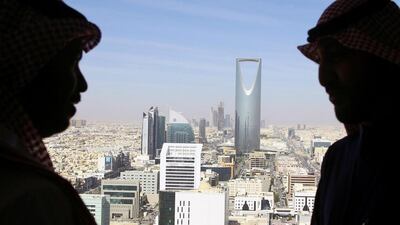Something is happening in Saudi Arabia. The country is undergoing real change. Many commentators have written about it, but in some instances their observations have been based on a one-off visit and their biases.
I am by no means an expert on Saudi Arabia, but as someone who has visited the country many times in the past 40 years, I want to share some conclusions from my just-completed visit as well as some of my most recent public-opinion polls.
In a real sense, Saudi Arabia has always been changing. In the early 1950s, for example, the population of Riyadh, the capital, was in the tens of thousands. By 1980, when I made my first visit, it had grown to one million. Today Greater Riyadh is approaching seven million souls. There have been times when the city looked like a massive construction site with buildings and other infrastructure projects everywhere.
Rapid urbanisation came with a price. As rural people flooded into newly expanded urban areas, many experienced culture shock and felt the need to cling to the “old ways” – not an unexpected response.
With each passing year, subtle but real changes have taken place. Some of them were the result of tens of thousands of Saudis having studied abroad; others flowed from the transformations in daily life, and social and economic relations as a result of urbanisation; still others reflected the impact of globalisation, especially on Saudi youth. In any case, today’s Saudi Arabia is not the one I first visited a generation ago, with many Saudis living lives and connecting to the outside world in ways unimaginable to their grandparents. Traditions, however, remain and this is enough for some in the West to dismiss the country’s culture as frozen. It appears that if change doesn’t come at their pace and in their way, it’s not real change.
But even beyond this slow and steady evolution, there is something new and significant taking place in the kingdom. Today there is a conscious and deliberate effort by the Saudi leadership to speed up this process of transforming their society and to challenge some elements of the traditional culture that stand in the way of moving the country forward. Some of the impetus behind this effort is, no doubt, due to the need to move beyond dependence on oil revenues and government-subsidised employment. Another important factor is the coming of age of a new generation of leaders seeking to modernise their country while being respectful of its traditions. Threading this needle is important since a significant segment of the population is conservative and the young leadership is not inclined to totally upend the social order creating instability.
As part of this national transformation, the number of Saudis studying abroad has increased to over 200,000. There are currently more women than men in college and female graduates are entering the workplace in ever increasing numbers. There has been a determined effort to modernise the education curriculum. On my most recent visit, I received a briefing at the ministry of education that struck me: reforms in early childhood and elementary education. Emphasis is being given to maths and science, training programmes for teachers as well as for children with disabilities and the provision of online and interactive educational opportunities for Saudis of all ages. These changes combined will no doubt produce even greater transformations in the years to come.
But what do Saudis think of their country and their own personal circumstances in this evolving social reality? There is opposition, to be sure and that is expected in any society experiencing change. But what our polling shows is that most Saudis are quite satisfied with their lives and are optimistic about the future. In a “quality of life” survey we conducted a few years ago in 22 countries, Saudi Arabia scored higher than the United States and most western countries. More recent polling – since the launch of the national transformation programme – have shown dramatic increases in both optimism and satisfaction ratings. There are concerns, to be sure, but on the whole men and women, young and old, educated and less educated give life in their country good grades and have high expectation for the future.
As ambitious and promising as the national transformation programme is, it is also a risky undertaking. On the one hand, there are the expectations that the promised change has created. This must be weighed against the backlash of Saudi conservatives.
Then there is the impact of the war in Yemen. Saudi Arabia is troubled by Iran’s aggressive ambitions and concerned with the destabilisation of their southern neighbour. The cost of the war is also a cause for concern, given the declining oil revenues and the price tag associated with the transformation.
Yet only a cynic or a bigot would want to see the Saudi national transformation programme fail. Although success is not guaranteed, Saudis should be supported.
Dr James Zogby is president of the Arab American Institute
On Twitter: @aaiusa


